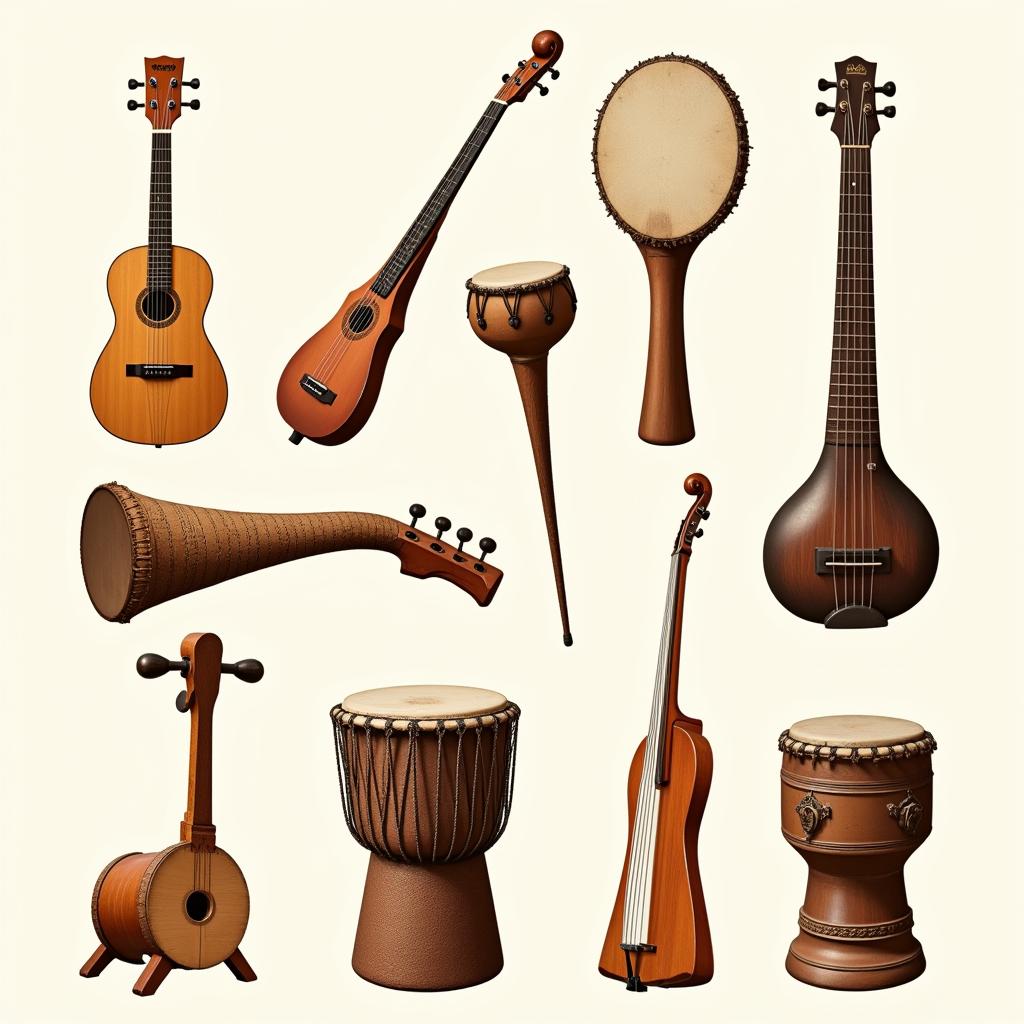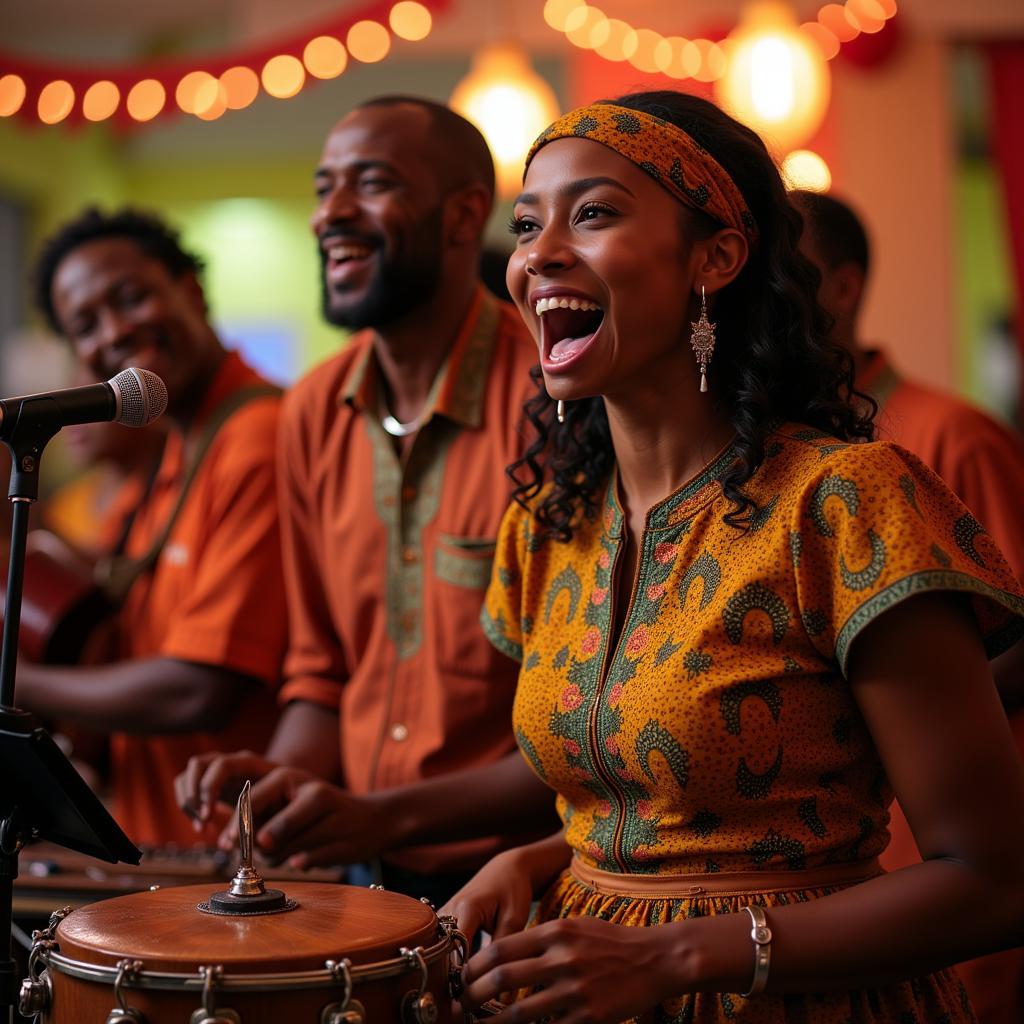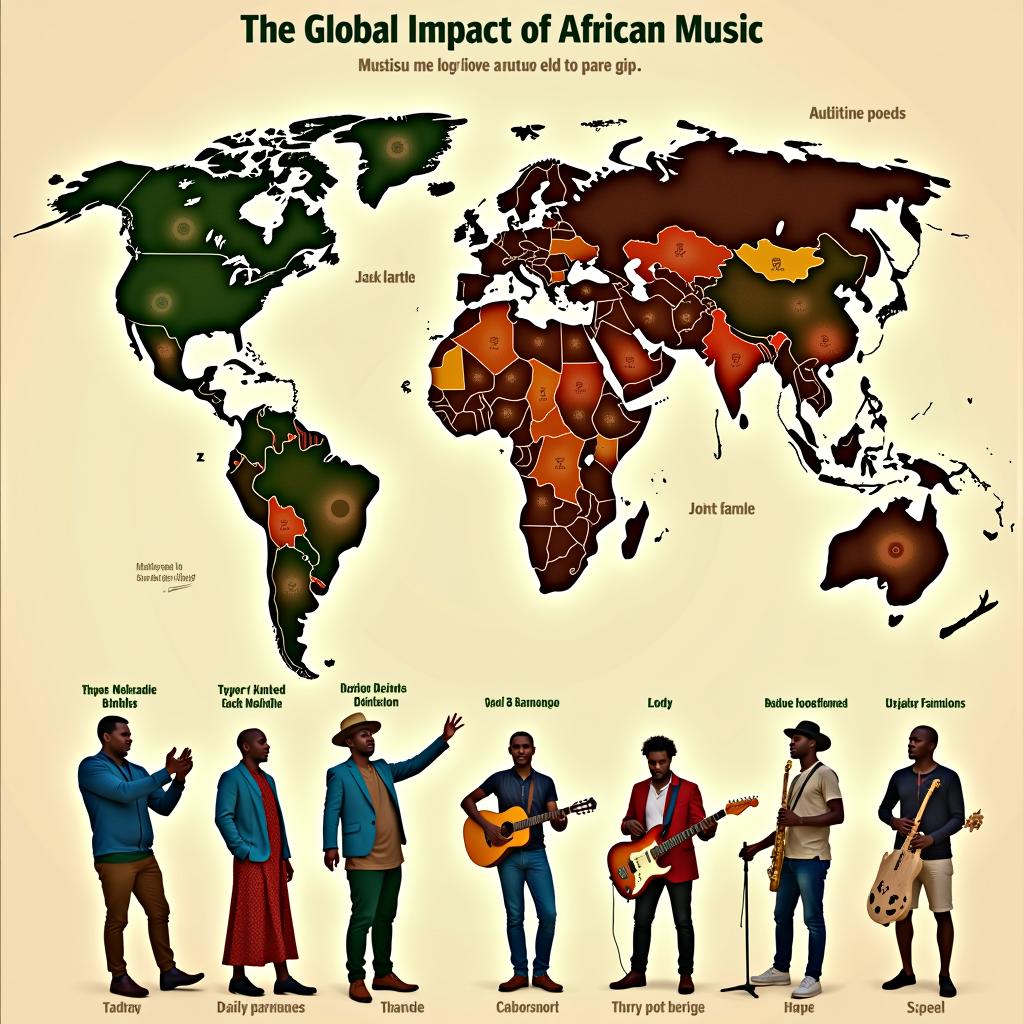The Rhythms of Africa: Exploring the Vibrant Tapestry of African Culture Music
The heartbeat of Africa resonates through its diverse and captivating music, a vibrant tapestry woven from centuries of tradition, innovation, and cultural expression. From the soulful melodies of West Africa to the energetic rhythms of East Africa, African music is a kaleidoscope of sound that captures the essence of its people, their stories, and their enduring spirit.
A Symphony of Cultures: The Roots of African Music
African music is not a singular entity; it’s a multifaceted mosaic of distinct styles and traditions, each reflecting the unique cultural heritage of a particular region or ethnic group. The diverse landscapes, languages, and beliefs of Africa have all contributed to the rich tapestry of its musical heritage.
Key Influences:
- Oral traditions: Music has long been a vital part of oral traditions in Africa, serving as a means of storytelling, history preservation, and social bonding.
- Spiritual beliefs: Traditional beliefs, rituals, and ceremonies often feature music as a crucial element, connecting the spiritual realm with the earthly plane.
- Instrument diversity: From the intricate kora of West Africa to the hypnotic ngoma drums of East Africa, the continent boasts a wide array of instruments, each with its own unique sound and cultural significance.
Beyond the Rhythm: The Essence of African Culture Music
African music goes beyond mere entertainment; it’s a powerful force that binds communities, celebrates life, and expresses a range of emotions. It reflects the joys of harvest festivals, the anxieties of war, the pain of loss, and the hopes for a brighter future.
Key Functions:
- Social cohesion: Music brings people together, fostering a sense of community and shared identity.
- Spiritual expression: It serves as a conduit for communicating with ancestors, gods, and spirits, strengthening spiritual connections.
- Political commentary: Music has often been used as a tool for social and political commentary, expressing dissent, advocating for change, and raising awareness about important issues.
Navigating the Rhythms: Exploring Different Styles of African Culture Music
The musical landscape of Africa is vast and diverse, with each region boasting a unique array of styles and genres. Here are some prominent examples:
West Africa:
- Highlife: A blend of traditional African music with Western instruments, characterized by its infectious rhythms and romantic melodies.
- Afrobeat: A genre pioneered by Fela Kuti, blending traditional Yoruba music with jazz, funk, and political messages.
- Jùjú: A guitar-driven genre popular in Nigeria, characterized by its fast tempos, intricate rhythms, and energetic performances.
East Africa:
- Taarab: A romantic and expressive genre from Tanzania, featuring Arabic and Indian influences.
- Benga: A genre from Kenya, known for its energetic rhythms, guitar riffs, and lyrical themes of love, life, and social issues.
- Soukous: A dance-oriented genre from the Congo region, characterized by its fast tempos, rhythmic guitar lines, and dynamic arrangements.
Southern Africa:
- Mbaqanga: A genre from South Africa, known for its driving rhythms, vocal harmonies, and its association with the anti-apartheid struggle.
- Kwela: A genre also from South Africa, characterized by its use of pennywhistles, lively rhythms, and its roots in the township culture.
- Gqom: A genre emerging from Durban, South Africa, known for its minimalist sound, repetitive basslines, and raw, underground energy.
The Global Influence of African Culture Music
African music has transcended geographical borders, influencing genres and artists worldwide. From the early days of jazz and blues to contemporary pop and hip-hop, the continent’s rhythms have left an indelible mark on global music.
Key Impacts:
- Jazz and blues: African musical traditions have played a significant role in shaping the development of jazz and blues, influencing the use of syncopation, improvisation, and soulful expression.
- Funk and soul: The energetic rhythms and grooves of African music have inspired numerous funk and soul artists, particularly in the 1960s and 1970s.
- Contemporary pop: African music continues to inspire contemporary pop artists, with elements of traditional rhythms, melodies, and instrumentation finding their way into global hits.
The Future of African Culture Music
African music continues to evolve and innovate, embracing new technologies, fusing with international styles, and keeping its rich traditions alive. With a growing global audience, the music of Africa is poised to shape the sounds of the future, bridging cultures, inspiring creativity, and celebrating the vibrant heritage of a continent full of life and rhythm.
What is the difference between traditional and contemporary African music?
Traditional African music often relies on instruments made from natural materials and features intricate rhythms and melodies rooted in specific cultural practices. Contemporary African music often incorporates elements of Western instruments and styles, reflecting a fusion of traditional and modern influences.
What is the role of music in African culture?
Music plays a crucial role in African culture, serving as a means of storytelling, social cohesion, spiritual expression, and political commentary. It is an integral part of ceremonies, celebrations, and everyday life.
How can I learn more about African culture music?
Explore online resources, visit cultural centers, attend live music events, and immerse yourself in the diverse sounds of African music. You can also connect with musicians and artists from various African countries to gain insights into their traditions and perspectives.



Embrace the Rhythm: Dive into the World of African Culture Music
African music is a vibrant tapestry of sound that celebrates the spirit of the continent and its diverse cultures. From the traditional rhythms that have resonated for centuries to the contemporary sounds that are shaping the future of music, the melodies of Africa offer a unique and compelling journey through the heart of the continent.
